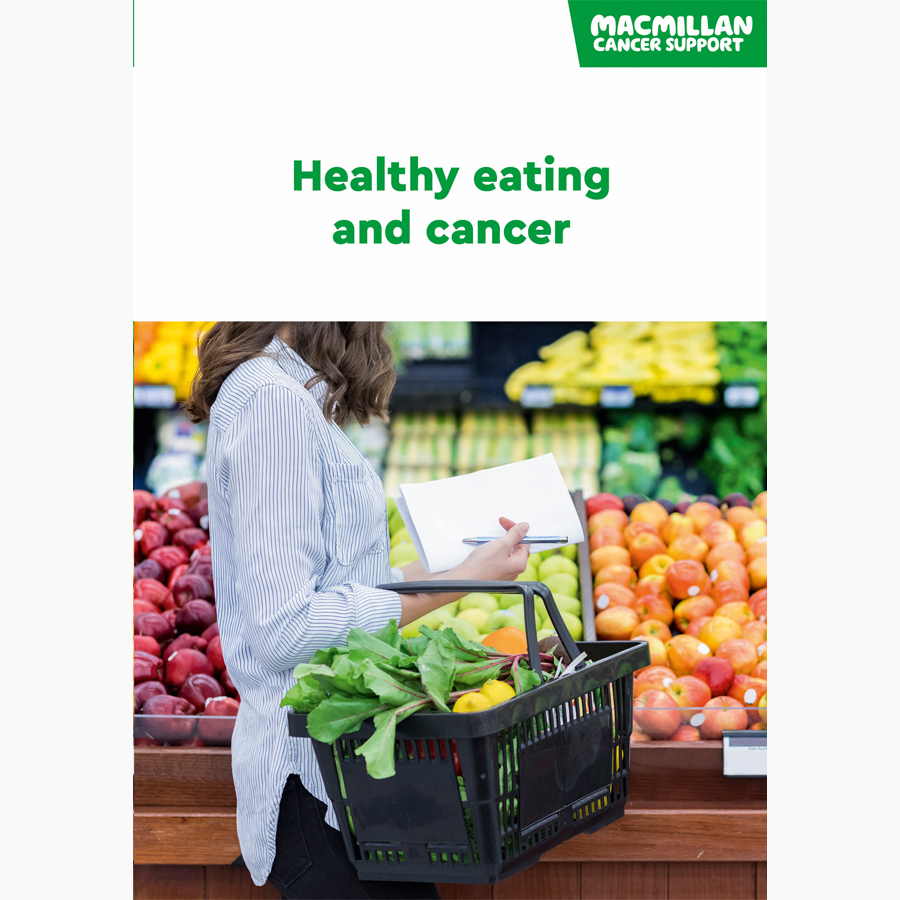Causes and risk factors of bowel cancer
Doctors do not know the exact cause of bowel cancer. But certain things can increase your chance of developing it.
What are the risk factors of bowel cancer?
In the UK, about 44,100 people get cancer in the large bowel each year. The large bowel includes the colon and the rectum. Cancer that starts in the colon or rectum is also sometimes called colorectal cancer.
Doctors do not know the exact cause of bowel cancer. But certain things can increase your chance of developing it.
These are called risk factors. Having 1 or more risk factors does not mean you will definitely get bowel cancer. And if you do not have any risk factors, it does not mean you will not get bowel cancer.
Bowel cancer is not infectious and cannot be passed on to other people.
We have separate information about:
Getting support
If you are worried about bowel cancer and would like to talk to someone, we are here. You can:
- call the Macmillan Support Line for free on 0808 808 00 00
- chat to our specialists online
Related pages
Age
Like most types of cancer, bowel cancer is more common in older people. In the UK, around 4 in 10 bowel cancer cases (44%) each year are diagnosed in people aged 75 and over.
But the number of people aged 50 and under diagnosed with bowel cancer is increasing each year. The exact cause of this is not known.
Diet
Several risk factors for bowel cancer are related to diet.
Red and processed meat
Eating a lot of red and processed meat increases the risk of bowel cancer. In the UK, about 1 in 10 bowel cancer cases (13%) are linked to eating these meats.
Red meat includes:
beef
- lamb
- pork
- veal
- venison
- goat.
Processed meat includes:
- smoked meat
- ham
- bacon
- sausages
- pâté
- tinned meat.
Current UK guidelines recommend that you eat no more than 70g of red meat per day. That is about 3 slices of ham or 1 lamb chop.
No link has been found between bowel cancer and eating poultry such as chicken and turkey, or seafood.
Not eating enough fibre
Eating too little fibre increases the risk of bowel cancer. About 3 in 10 bowel cancer cases (30%) in the UK are linked to not eating enough fibre.
UK guidelines recommend 30 grams of fibre a day, as part of a healthy balanced diet.
You can boost the fibre in your diet by eating:
- brown rice, pasta or bread
- wholegrain breakfast cereals
- more fruit and vegetables high in fibre, such as peas and apples.
Booklets and resources
Being overweight
Being overweight or carrying excess fat around your waist can increase the risk of bowel cancer, especially in men.
Low physical activity
People who spend lots of time sitting or being inactive are more likely to develop bowel cancer.
Related pages
Alcohol
Drinking alcohol increases the risk of bowel cancer. About 6 in 100 bowel cancer cases (6%) in the UK are linked to drinking alcohol.
You can find information about alcohol guidelines and how alcohol can affect your health at drinkaware.co.uk.
Smoking
Smoking tobacco increases your risk of bowel cancer. If you are diagnosed with bowel cancer, stopping smoking has lots of benefits. Your doctor or nurse will talk to you about this.
Family history
Most people who get bowel cancer do not have a family history of it. Having 1 family member who developed bowel cancer at an older age does not increase your risk.
If several close family members on the same side of your family have had bowel cancer, this may increase your risk. You may also have a higher risk if a close family member had bowel cancer before the age of 50. Close family members are parents, brothers and sisters.
People who have a history of bowel cancer in their family can be referred to a specialist clinic to assess their risk. People with a higher risk of bowel cancer are offered bowel screening with a colonoscopy.
For more information, contact your GP or call our cancer support specialists on 0808 808 00 00.
Related pages
Inherited (familial) conditions
About 5 in every 100 bowel cancers (5%) are caused by an inherited faulty gene.
There are 2 rare conditions that can run in families:
- familial adenomatous polyposis (FAP)
- Lynch syndrome – also called hereditary non-polyposis colorectal cancer (HNPCC).
People with either condition have a very high risk of developing bowel cancer.
We have information about cancer and genetics.
Familial adenomatous polyposis (FAP)
FAP causes less than 1 in every 100 bowel cancer cases (less than 1%).
People with FAP have hundreds or thousands of non-cancerous (benign) growths called polyps in the lining of their colon. They may also have polyps in their rectum.
People with FAP have regular colonoscopies to look for signs of cancer. It is usually recommended that people with FAP have an operation to remove their colon and sometimes their rectum. Unless the colon is removed, nearly everyone with FAP will develop bowel cancer.
Lynch syndrome (HNPCC)
People with Lynch syndrome have an increased risk of bowel cancer at a young age. Lynch syndrome causes about 4 in every 100 bowel cancer cases (4%).
People with Lynch syndrome are offered a colonoscopy every 1 to 2 years from the age of 25.
Lynch syndrome causes polyps in the bowel. A colonoscopy is used to find signs of cancer, but also to find and remove polyps. This helps to prevent cancer developing.
We have information about bowel screening.
Inflammatory bowel conditions
Having an inflammatory bowel condition can increase the risk of bowel cancer. Inflammatory bowel conditions include ulcerative colitis and Crohn’s disease. People with these conditions may be offered regular bowel screening with a test called a colonoscopy. This means having regular tests to look at the inside of the large bowel.
Irritable bowel syndrome (IBS) is not an inflammatory bowel condition. It does not increase the risk of bowel cancer.
Type 2 diabetes
About our information
This information has been written, revised and edited by Macmillan Cancer Support’s Cancer Information Development team. It has been reviewed by expert medical and health professionals and people living with cancer.
-
References
Below is a sample of the sources used in our bowel cancer information. If you would like more information about the sources we use, please contact us at
informationproductionteam@macmillan.org.uk
National Institute for Health and Care Excellent (NICE). Colorectal cancer. NICE guideline [NG151]. Updated December 2021. Available from: www.nice.org.uk/guidance/NG151 [accessed Jan 2023].
Cervantes A, Adam R, Rosello S, et al. Metastatic colorectal cancer: ESMO Clinical Practice Guideline for diagnosis, treatment and follow-up. Annals of Oncology. 2023;34(1):10-32. Available from: www.annalsofoncology.org [accessed Jan 2023].
Date reviewed

Our cancer information meets the PIF TICK quality mark.
This means it is easy to use, up-to-date and based on the latest evidence. Learn more about how we produce our information.
The language we use
We want everyone affected by cancer to feel our information is written for them.
We want our information to be as clear as possible. To do this, we try to:
- use plain English
- explain medical words
- use short sentences
- use illustrations to explain text
- structure the information clearly
- make sure important points are clear.
We use gender-inclusive language and talk to our readers as ‘you’ so that everyone feels included. Where clinically necessary we use the terms ‘men’ and ‘women’ or ‘male’ and ‘female’. For example, we do so when talking about parts of the body or mentioning statistics or research about who is affected.
You can read more about how we produce our information here.
How we can help







